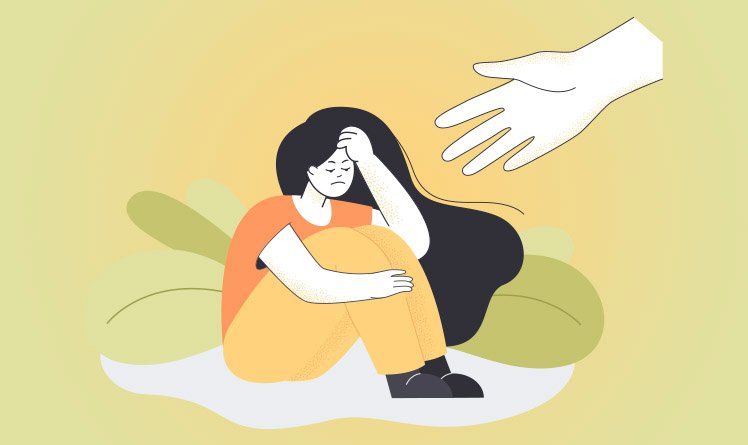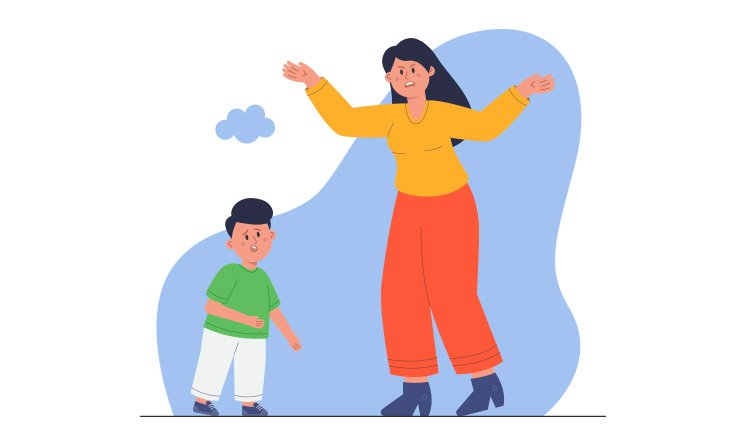Limiting beliefs: what they are and how to deal with them

|
Getting your Trinity Audio player ready...
|
Have you ever thought that you are not capable of achieving a certain goal? Or that certain achievements are simply impossible for you? These feelings can be signs of limiting beliefs acting in your life.
In this article, we will explore in depth what limiting beliefs are, their origins, how they affect our daily lives and, most importantly, how we can overcome them. Finally, we will discover practical ways to transform these beliefs into engines for our growth.
What are limiting beliefs?
Limiting beliefs are deep-seated, unconscious beliefs we have about ourselves and the world that prevent us from reaching our full potential. They are mental barriers we build throughout our lives, often rooted in past experiences, traumas, or negative messages we received during childhood and adolescence.
These beliefs They are usually not based on objective facts, but on distorted perceptions that we develop throughout life. Thus, they act as invisible barriers that restrict our actions, choices and, consequently, our personal development. As a consequence, they limit our ability to grow, learn and achieve our goals.
Furthermore, these negative patterns automatically repeat themselves in our minds, influencing our decisions, behaviors and results.
In neuroscience, limiting beliefs are associated with highly activated neural circuits in the brain. Thus, when a thought pattern is repeated over and over, the brain strengthens these connections as if it were a "paved path." This explains why it's so difficult to change certain beliefs: they're literally part of our mental makeup. But the good news is that, thanks to neuroplasticity, it is possible to create paths and replace old ones.
“Limiting beliefs are ingrained mental patterns that the brain repeats unconsciously — but that can be replaced through neuroplasticity.”
How limiting beliefs are formed
Limiting beliefs don’t just come out of nowhere. They’re usually rooted in past experiences, traumas, or negative messages we’ve received throughout our lives.

Childhood and education
Many of our limiting beliefs are acquired during childhood, through interactions with our parents and family members. After all, childhood is a crucial period for developing the foundation of our beliefs. So, if you grew up, for example, hearing that “money is hard to earn” or that “you are not good enough”, these messages can become limiting beliefs that hinder your development throughout your life.
Criticism, comparisons, punishments, and lack of support can also lead to the development of limiting beliefs. On the other hand, a positive and loving family environment, with praise and encouragement, can strengthen our self-esteem and our beliefs about our potential.
Negative experiences
Negative experiences throughout life, such as failures, traumas or situations of bullying, can also contribute to the development of limiting beliefs.
If we feel unable to deal with these challenges, we may internalize the message that we are not good enough or that we do not have the ability to overcome obstacles.
External influences
People around us, such as friends, family, coworkers, and even the media, can also influence our beliefs. In this way, criticism, negative comments, and pessimistic messages can lead us to doubt our abilities and reinforce limiting beliefs.
Likewise, the society and culture in which we live play a crucial role in shaping our beliefs. Cultural norms, stereotypes, and social expectations can influence us to believe in limitations that are actually just social constructs. For example, the belief that “people who are not successful and have no money are failures” is a culturally imposed limitation.
How limiting beliefs affect our lives
Limiting beliefs can have a profound and damaging impact on our lives. They can undermine our self-esteem, confidence and motivation, leading us to avoid challenges, opportunities and experiences that could help us grow and develop.
Beyond the emotional impact, limiting beliefs also affect our behavior. They can lead to procrastination, paralysis when faced with important choices, or self-sabotage in decisive moments. Often, people don't even realize they're limiting themselves—they just "feel" they can't do it, without understanding where that feeling comes from.
“Limiting beliefs generate self-sabotage, insecurity, and avoidance of important decisions, limiting personal and professional growth.”
Devastated self-esteem
Limiting beliefs can have a devastating impact on our self-esteem. When we believe we’re not good enough or don’t deserve success, we undermine our confidence and self-worth. This can lead us to avoid challenges and opportunities that could foster our growth.
Barriers to personal growth
These beliefs act as invisible barriers that prevent us from leaving our comfort zone. Thus, they make us believe that certain goals are unattainable, preventing us from exploring our true potential and achieving our dreams.
Interpersonal relationships
Limiting beliefs can also negatively affect our interpersonal relationships. They can lead us to avoid social situations, fear rejection, or develop a negative view of others, which can harm the quality and depth of our relationships.
Physical and mental well-being
Additionally, limiting beliefs can generate negative emotions, such as fear, anxiety, depression and frustration, which in turn affect our physical and mental well-being. They can also harm our relationships, as they tend to make us adopt defensive, insecure or self-sabotaging behaviors.
Identifying your limiting beliefs
The first step to overcoming limiting beliefs is to identify them. This requires a level of self-knowledge that is not always easy to achieve. Therefore, practice self-reflection, self-observation and ask yourself what recurring thoughts are preventing you from moving forward.
A good exercise is to pay attention to your thoughts, especially in times of difficulty or challenge.
Ask key questions
One way to identify your limiting beliefs is to ask yourself a few key questions:
- What negative thoughts come to mind when I think about…?
- What stops me from…?
- Why am I not able to…?
- What's the worst that could happen if I…?
Often, when we investigate the origin of these beliefs, we realize that they have no solid foundation and can be challenged and transformed.
Examples of common limiting beliefs
Some common limiting beliefs include:
- “I’m not good enough”
- “I don’t have the talent for this”
- “I can't change, I'm just like this”
- “I don’t deserve success”
- “I am not capable of learning something new”
- “I can't trust anyone”
- “I am not worthy of love and happiness”
- “I can’t take any chances, I’ll fail”
These beliefs can manifest themselves in different ways in our lives, affecting our performance, relationships, mental health and overall well-being.
Recognizing limiting belief patterns
Limiting beliefs often manifest themselves in recurring patterns of behavior, such as avoiding certain situations, giving up easily when faced with obstacles, or putting oneself in positions of inferiority. Therefore, observing these patterns can reveal the beliefs that sustain them.
Questions like "What situations do I avoid?" or "When do I feel incapable or inadequate?" can help identify the limiting beliefs behind these behaviors.
Another common sign is when you sabotage yourself just as you're about to achieve something important. For example, postponing a project that's about to be completed, refusing a compliment, or "forgetting" to show up for a crucial interview. These behaviors are usually linked to the belief that you don't deserve success or that you'll somehow end up failing—even when everything points to the contrary.
“Self-sabotage is one of the main indicators that limiting beliefs are active, especially in moments of achievement.”
Strategies to overcome limiting beliefs
While limiting beliefs can be challenging, it’s important to remember that they are not fixed and unchangeable. You can transform them and build a more positive and empowering belief system. Here are some practices that will help you:
Challenge and question your beliefs
Once identified, it is important to challenge and question our limiting beliefs. Ask yourself:
- Is this thought really true?
- Are there other ways to interpret the situation?
- What evidence supports this thinking?
- What evidence contradicts this thinking?
This questioning process is essential to begin replacing limiting beliefs with more empowering and realistic beliefs, using reconstruction techniques, as we will see below.
Use resignification
The subconscious mind is responsible for much of our automatic thoughts and behaviors. Thus, the NLP (Neuro-Linguistic Programming) helps us replace limiting beliefs with more positive and empowering beliefs, as it works very incisively on our unconscious actions. Although it is essential to understand the origin of our own beliefs, it is possible to replace them with new affirmations about ourselves and the world we live in within our spectrum of vision.
Thus, the resignification, a powerful NLP technique that involves changing the way we interpret a situation or belief, becomes a powerful ally in combating limiting beliefs. Instead of seeing failure as proof of incompetence, for example, we can see it as an opportunity for learning and growth.
Practice the mindfulness
The practice of mindfulness, mainly combined with NLP, can help us become aware of our thoughts and emotions, allowing us to identify and challenge limiting beliefs.
THE meditation, for example, can be an effective tool for cultivating a more open mind that is receptive to new perspectives.
One of the biggest benefits of mindfulness It's about allowing you to notice the triggers that activate your limiting beliefs. Therefore, observing these patterns with mindfulness and without judgment allows us to interrupt the automatic thought cycle and consciously choose a new way of responding.
“Mindfulness helps identify and interrupt automatic triggers of limiting beliefs, promoting more conscious choices.”
Cultivate a growth mindset
A growth mindset involves believing that our abilities and potential can be developed through effort, learning, and persistence. Thus, developing a growth mindset, as opposed to a fixed mindset, is essential to overcoming limiting beliefs.
This approach, in the same way, encourages us to view challenges as learning opportunities, rather than threats to be avoided. So it motivates us to seek feedback, accept mistakes as part of the process and continually strive to improve.
Practice positive affirmations
Another effective strategy for overcoming limiting beliefs is to use positive psychology in our favor. Therefore, make use of the practice of positive affirmations, with short and powerful statements that challenge our negative beliefs and replace them with more empowered and constructive thoughts.
Examples of positive affirmations include:
- “I am capable of learning and developing myself”
- “I deserve success and happiness”
- “I have the potential to achieve my goals”
- “I am strong and resilient.”
Repeating these affirmations regularly can help reprogram our minds and strengthen our self-confidence.
To make them more effective, combine the affirmations with vivid mental images of yourself already living this new reality. Visualizing scenarios in which your new beliefs are already active helps reinforce these neural pathways in the brain, accelerating mental reprogramming.
Seek professional support and guidance
Finally, seeking support and guidance from professionals, such as therapists, coaches, or mentors, can be extremely beneficial in overcoming limiting beliefs. After all, these experts can help us gain an outside perspective, acquire effective tools and strategies, and build the resilience needed to transform our mindset in a lasting way.
Therapies such as cognitive behavioral therapy (CBT) and acceptance and commitment therapy (ACT) have been shown to be particularly effective in treating limiting beliefs and promoting a growth mindset.
The role of resilience
THE resilience is the ability to bounce back from adversity and keep moving forward. Developing this skill is crucial to overcoming limiting beliefs, as it allows us to face challenges with more confidence and determination.
Therefore, persisting in the face of difficulties is essential to overcoming these beliefs. The journey to replacing them with more positive and empowering thoughts is long and requires dedication. However, with persistence, it is possible to reprogram our minds and achieve significant results.
In short…
Overcoming limiting beliefs is an ongoing process that requires self-awareness, questioning, and the application of effective strategies. But when we understand where these beliefs come from and how they affect our lives, we can actively work to transform them and unlock our full potential.
Furthermore, it's also essential to be patient with the process. Transforming limiting beliefs doesn't happen overnight. It's a journey of internal reconstruction that requires consistency, practice, and, above all, self-compassion. Recognizing small changes is already a sign of progress.
“Overcoming limiting beliefs is a gradual process that requires practice, consistency, and self-compassion.”
Tips for dealing with limiting beliefs in everyday life
In addition to the tools mentioned above, there are some tips you can follow to deal with limiting beliefs in your daily life:
- Create a positive and inspiring environment: Surround yourself with positive and motivating people. Avoid toxic and negative environments.
- Surround yourself with people who support you: Therefore, seek support from friends, family and professionals who believe in you and your potential.
- Celebrate your achievements, no matter how small: Recognize and celebrate your progress, no matter how small it may seem. This will help you build your self-esteem and confidence.
- Practice gratitude: A gratitude can help you focus on the positive and appreciate the good things in your life.
- Forgive yourself and others: Forgiveness is essential to releasing resentments and hurts that may be preventing you from moving forward.
- Take care of your physical and mental health: Good physical and mental health will give you more energy, disposition and resilience to deal with life's challenges.
- .. seek professional help: If you are having difficulty dealing with your limiting beliefs on your own, seek professional help from a psychologist or therapist.
Remember that change starts within us, and with determination and persistence, we can create a fuller, more satisfying life!
FAQ – Frequently asked questions about limiting beliefs
1. What are limiting beliefs?
Limiting beliefs are unconscious convictions that restrict your potential, based on past experiences, traumas, or cultural patterns, which act as invisible barriers to your personal and professional growth.
2. How do I identify my limiting beliefs?
Notice negative thought patterns, self-sabotage, and repetitive behaviors of giving up or fear. Ask yourself questions like, "What stops me from taking action?" or "What thoughts come up when I try something new?"
3. Does NLP really help change limiting beliefs?
Yes, Neuro-Linguistic Programming is an effective tool for reprogramming mental patterns, replacing negative beliefs with more constructive ones through techniques such as reframing and the use of anchoring.
4. Mindfulness can help in overcoming limiting beliefs?
Yes. The mindfulness increases awareness of your own thoughts and emotions, allowing you to identify and interrupt automatic patterns associated with negative beliefs.
5. Why do repeating positive affirmations work?
Because they help recondition your mind. By repeating phrases that affirm your worth, ability, and potential, you weaken negative beliefs and reinforce positive ones—especially when combined with mental visualizations.
Recommended reading:
Awaken the Giant Within: How to Take Control of Everything in Your Life – Tony Robbins
Beliefs: Pathways to Health and Well-Being – Robert B. Dilts
Article originally published on 06/13/2024 and updated on that date.

Marcel Castilho is an expert in neuromarketing, neuroscience, mindfulness and positive psychology. In addition to being an advertiser, he also has a Master's degree in NLP – Neurolinguistic Programming. As the owner and founder of the communications agency VeroCom and also of the digital agency Vero Contents, he has been studying human behavior for over 30 years.




